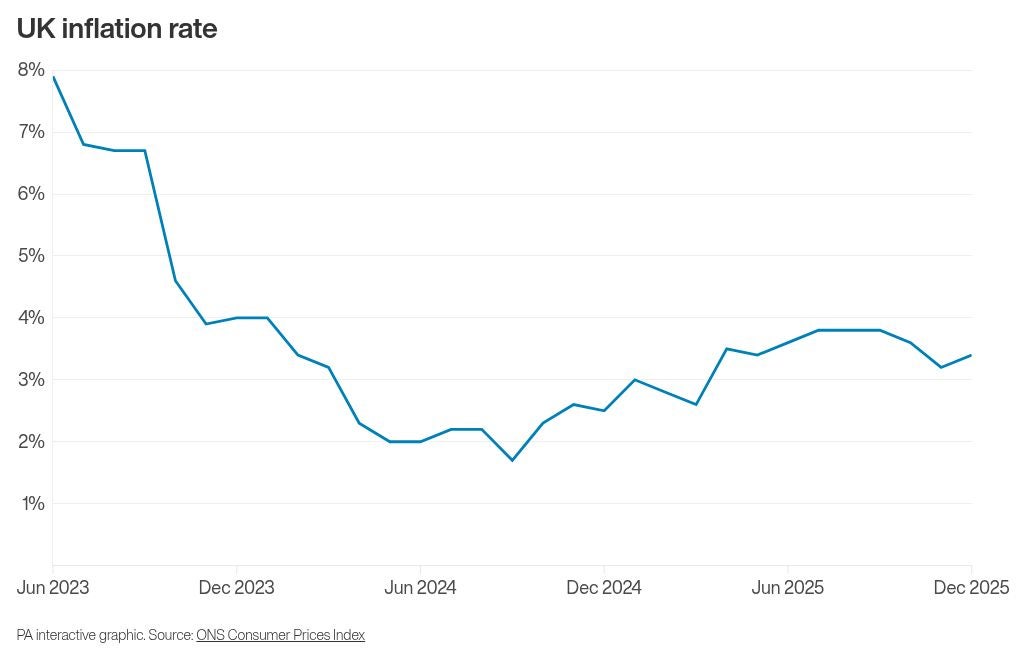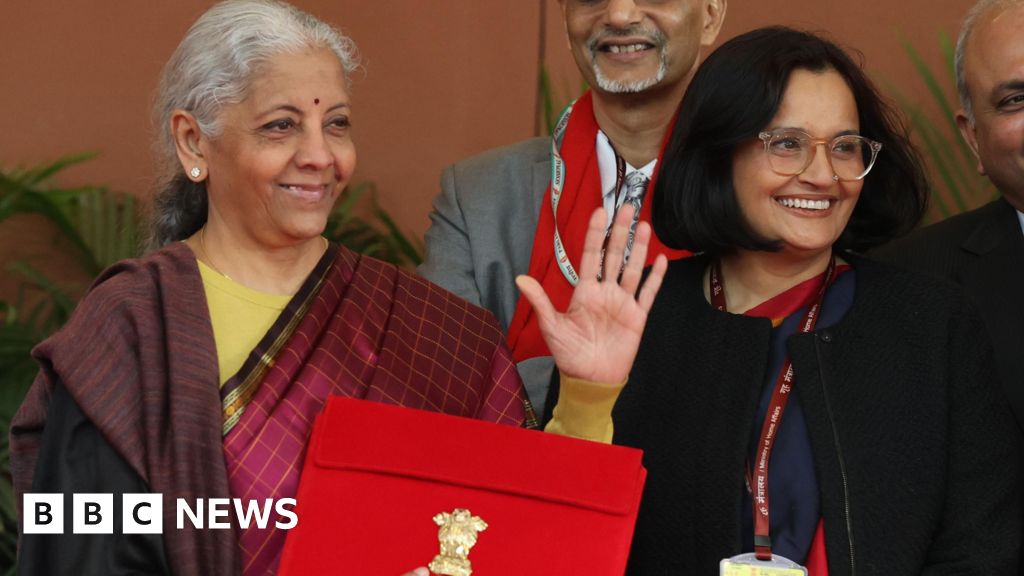Business
Revolut founder to become one of Britain’s richest businessmen after huge valuation

The founder of fintech firm Revolut, Nik Storonsky, is set to become one of the ten richest businessmen in Britain.
App-based bank Revolut is allowing employees to sell a portion of their shares in the company – up to 20 per cent – for $1,381.06 per share (around £1,029) in a secondary sale, which will value the business in total at $75bn (£55.9bn). Last year, the company was valued at $45bn (£33.5bn).
Mr Storonsky has around a 25 per cent holding of the firm, meaning his personal wealth will grow to more than $18bn (£13.5bn) – putting him in the top ten richest businesspeople in the UK.
Bloomberg’s Billionaire Index ranks James Dyson, the entrepreneur and inventor, as the richest on these shores with a personal wealth of $19.5bn. Sir Jim Ratcliffe, owner of Ineos and part-owner of Manchester United, is next in line at $16.2bn according to their list.
Other sources who work out billionaire wealth by different metrics place Storonsky’s impending value below that of Ratcliffe’s, while individuals such as Lakshmi Mittal – chairman at one of the world’s biggest steel manufacturers – is based in the UK, though born in India.
Thus, there will be discrepancies at the precise rank of Mr Storonsky – himself Russian-born but who renounced his citizenship after the invasion of Ukraine – when it comes to richest business people in the UK. He will certainly, however, be within the ranks of the top ten – and with the potential to go far higher.
As part of his package at Revolut, the founder will add more shares to his ownership if he steers the firm to a $150bn valuation, double that of the new level.
On the employee share sale, a spokesperson said: “As part of our commitment to our employees, we regularly provide opportunities for them to gain liquidity. An employee secondary share sale is currently in process, and we won’t be commenting further until it is complete.”
While Revolut does not yet have a full banking licence for the UK, it does hold a restricted one to allow it to operate towards being a full bank during a “mobilisation” phase.
Its valuation of around £56bn makes it bigger than the market capitalisation of public listed banks such as Natwest (£41.7bn), the Lloyds group (£47.6bn) and Barclays (£51.6bn). Revolut are expected to float on the stock market in due course, though Mr Storonsky suggested New York, rather than London, fits the company better for it.
Annual profits at Revolut topped £1bn last year, while earlier this year they announced an internal points system which contributes towards employee bonuses, as well as an intent to break into the mobile phone operator market.
Business
How inflation rebound is set to affect UK interest rates

Interest rates are widely expected to remain at 3.75% as Bank of England policymakers prioritise curbing above-target inflation while also monitoring economic growth, according to expert analysis.
The Bank’s Monetary Policy Committee (MPC) is anticipated to leave borrowing costs unchanged when it announces its latest decision on Thursday, marking its first interest rate setting meeting of the year.
This follows a rate cut delivered before Christmas, which was the fourth such reduction.
At the time, Governor Andrew Bailey noted that the UK had “passed the recent peak in inflation and it has continued to fall”, enabling the MPC to ease borrowing costs. However, he cautioned that any further cuts would be a “closer call”.
Since that decision, official data has revealed that inflation unexpectedly rebounded in December, rising for the first time in five months.
The Consumer Prices Index (CPI) inflation rate reached 3.4% for the month, an increase from 3.2% in November, with factors such as tobacco duties and airfares contributing to the upward pressure on prices.
Economists suggest this inflation uptick is likely to reinforce the MPC’s inclination to keep rates steady this month.
Philip Shaw, an analyst for Investec, stated: “The principal reason to hold off from easing again is that at 3.4% in December, inflation remains well above the 2% target.”
He added: “But with the stance of policy less restrictive than previously, there are greater risks that further easing is unwarranted.”
Shaw also highlighted other data points the MPC would consider, including gross domestic product (GDP), which saw a return to growth of 0.3% in November – a potentially encouraging sign for policymakers.
Matt Swannell, chief economic advisor to the EY ITEM Club, affirmed: “Keeping bank rate unchanged at 3.75% at next week’s meeting looks a near-certainty.”

He noted that while some MPC members who favoured a cut in December still have concerns about persistent wage growth and inflation, recent data has not been compelling enough to prompt back-to-back reductions.
Edward Allenby, senior economic advisor at Oxford Economics, forecasts the next rate cut to occur in April.
He explained: “The MPC will continue to face a delicate balancing act between supporting growth and preventing inflation from becoming entrenched, with forthcoming data on pay settlements likely to play a decisive role in shaping the next policy move.”
The Bank’s policymakers have consistently voiced concerns regarding the pace of wage increases in the UK, which can fuel overall inflation.
Business
Budget 2026: India pushes local industry as global tensions rise

India’s budget focuses on infrastructure and defence spending and tax breaks for data-centre investments.
Source link
Business
New Income Tax Act 2025 to come into effect from April 1, key reliefs announced in Budget 2026

New Delhi: Finance Minister Nirmala Sitharaman on Sunday said that the Income Tax Act 2025 will come into effect from April 1, 2026, and the I-T forms have been redesigned such that ordinary citizens can comply without difficulty for ease of living.
The new measures include exemption on insurance interest awards, nil deduction certificates for small taxpayers, and extension of the ITR filing deadline for non-audit cases to August 31.
Individuals with ITR 1 and ITR 2 will continue to file I-T returns till July 31.
“In July 2024, I announced a comprehensive review of the Income Tax Act 1961. This was completed in record time, and the Income Tax Act 2025 will come into effect from April 1, 2026. The forms have been redesigned such that ordinary citizens can comply without difficulty, for) ease of living,” she said while presenting the Budget 2026-27
In a move that directly eases cash-flow pressure on individuals making overseas payments, the Union Budget announced lower tax collection at source across key categories.
“I propose to reduce the TCS rate on the sale of overseas tour programme packages from the current 5 per cent and 20 per cent to 2 per cent without any stipulation of amount. I propose to reduce the TCS rate for pursuing education and for medical purposes from 5 per cent to 2 per cent,” said Sitharaman.
She clarified withholding on services, adding that “supply of manpower services is proposed to be specifically brought within the ambit of payment contractors for the purpose of TDS to avoid ambiguity”.
“Thus, TDS on these services will be at the rate of either 1 per cent or 2 per cent only,” she mentioned during her Budget speech.
The Budget also proposes a tax holiday for foreign cloud companies using data centres in India till 2047.
-

 Sports5 days ago
Sports5 days agoPSL 11: Local players’ category renewals unveiled ahead of auction
-

 Tech1 week ago
Tech1 week agoStrap One of Our Favorite Action Cameras to Your Helmet or a Floaty
-

 Sports1 week ago
Sports1 week agoWanted Olympian-turned-fugitive Ryan Wedding in custody, sources say
-

 Entertainment1 week ago
Entertainment1 week agoThree dead after suicide blast targets peace committee leader’s home in DI Khan
-

 Tech1 week ago
Tech1 week agoThis Mega Snowstorm Will Be a Test for the US Supply Chain
-

 Sports1 week ago
Sports1 week agoStorylines shaping the 2025-26 men’s college basketball season
-

 Fashion1 week ago
Fashion1 week agoSpain’s apparel imports up 7.10% in Jan-Oct as sourcing realigns
-

 Entertainment1 week ago
Entertainment1 week agoUFC Head Dana White credits Trump for putting UFC ‘on the map’






